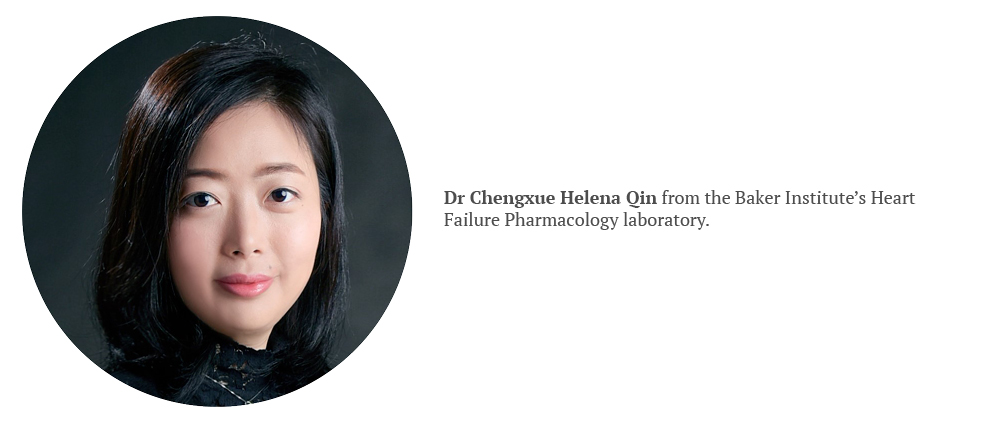
Researchers at Baker Institute say they are on the cusp of developing smarter, targeted cardiac drugs that have the potential to keep heart muscle alive and reduce inflammation in heart attack patients without causing secondary damage, like reperfusion damage, seen with current treatments.
By harnessing the protective effects of a natural phenomenon known as biased agonism – the ability of certain ligands to selectively activate some signalling pathways while blocking those that could lead to side effects – the Melbourne-based scientists have recently discovered a new way to activate the beneficial effects of a group of receptors involved in regulating cardiac inflammation without triggering the harmful signals that are also associated with their activation.
So far, biased agonism has only been reported in G protein-coupled receptors (GPCR). They’re the most common receptors in the genome and the largest clinical drug targets for disease – making the race to develop these promising agents into novel therapeutics more pressing than ever because the potential to translate findings into very real clinical benefit is huge.
We talk to Dr Chengxue Helena Qin from the Baker Institute’s Heart Failure Pharmacology laboratory about her work in this promising new field.
Can you describe the aim of your research in a few words?
To develop novel therapeutic strategies based on a naturally occurring anti-inflammatory protein to treat heart attack.
What have you discovered/achieved in this area so far?
My research mainly focuses on a group of proteins called, formyl peptide receptors (FPR). These proteins are involved in the inflammatory response. Excitingly, my recent landmark study published in Nature Communications demonstrated that our prototype Cmpd17b is a biased activator at FPR. This unique small-molecule allows FPR to favour signalling away from detrimental pro-inflammatory, pro-fibrotic mechanisms, and is thus superior to conventional means of activating such receptors. The phenomenon of biased agonism is currently revolutionising drug discovery; it is like the “new fashion” in the field.
This innovative work has already attracted considerable scientific recognition. I was award the British Pharmacology Society’s Outstanding Young Investigator Prize (in conjunction with The Australasian Society of Clinical and Experimental Pharmacologists and Toxicologists), and the Cardiac Society of Australia and New Zealand’s prestigious Ralph Reader Prize in basic science in August 2016. Our group will soon start seeking start-up investment to accelerate drug development in this area.
What aspect of this research excites you the most?
Our research has huge translational potential. The advantage of biased ligands is their ability to engage unique conformations of G-protein coupled receptors (GPCR) – the most successful pharmaceutical targets (these receptors have around 36% drug market share).
What’s your Holy Grail – the one thing you’d like to achieve in your research career?
My long-term career goal is to develop the first-in-class and best-in-class medicines to treat cardiovascular disease. My PhD project focused on synthesising and profiling an array of novel synthetic compounds isolated from red wine against cardiovascular disease. This group of compounds will be completing phase II clinical trial in heart attack patients in 2017.
What is your biggest research hurdle?
Translating research into the clinical setting. Drug discovery is a very long journey, facing multiple-death valley.
How long before your work impacts patient care?
BIASED AGONISM is currently revolutionising the drug discovery field. The advantage of biased ligands is their ability to stabilise subsets of receptor conformation to engage unique pharmacology, thus reducing on-target adverse effects. This approach was initiated by Nobel Laureate Drs Lefkowitz and Rockman and is now being pursued by a listed biotech company Trevena Inc. This Nobel prize-winning technology has already entered clinical trials for heart failure and pain.
Who has inspired you and why?
My parents who run a small-medium sized pharmaceutical company overseas
Nobel Laureate Prof Barry Marshall for his devotion to medical research
Nobel Laureate Prof YuYu Du who is the first female Laureate in China for her work in traditional Chinese medicine
Associate Professor Rebecca Ritchie who is my mentor at Baker IDI and a successful female scientist in cardiovascular research.
Describe your perfect day.
Having research funding approved, a manuscript accepted for publication and an experiment result that proves my hypothesis … haha!